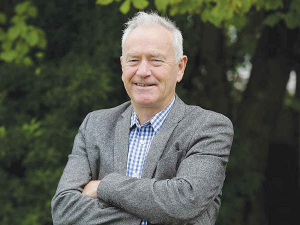Environment Southland expects “clear improvements” this year on winter grazing practices in the region.
Environment Southland chief executive Rob Phillips said last year’s winter grazing practice left a lot to be desired.
“It was a problem across Southland and I am hoping to see clear improvements this year off the back of a concerted effort with industry organisations to get all farmers up to speed with good practice.”
His comments came as the regional council began its winter grazing aerial compliance inspections. The first flight was conducted last week.
Last winter, Environment Southland undertook three aerial inspections resulting in 68 follow up site visits, letters of concern to a further 88 property owners, six infringements and two prosecution cases. A number of others were referred to Environment Southland’s land sustainability team for advice and support on winter grazing.
It says the situation compelled both the council chairman Nicol Horrell and Phillips to issue statements last winter highlighting the poor practice.
As part of the council’s effort to turn the situation around it initiated hui last year to bring industry organisations together – DairyNZ, Beef + Lamb New Zealand, Federated Farmers, MfE and MPI – to formulate a plan to tackle the problem. They have since provided a range of support to farmers.
“It’s really good to see the industry stepping up with farmers helping farmers,” says Phillips.
“Now more than ever, in these post Covid-19 times of economic recovery, we need our primary sector to be the best it can be if Southland is to continue to thrive, and that includes environmentally.”
Phillips says the council had worked hard to help farmers lift their winter grazing performance. It initiated hui, provided advice through its land sustainability team, made informational material available, and following Covid-19, worked in conjunction with industry on a solution to streamline access to modify consent conditions for farmers struggling with excess stock due to a slow down at processing plants.
“There’s been a sustained, region-wide effort to help farmers improve their wintering practice and I’m looking forward to seeing the results in terms of improvement,” says Phillips.
Last week’s flight was a preliminary one to provide in initial estimation on wintering practice in Southland. Further compliance flights will be undertaken later in late July/August.











